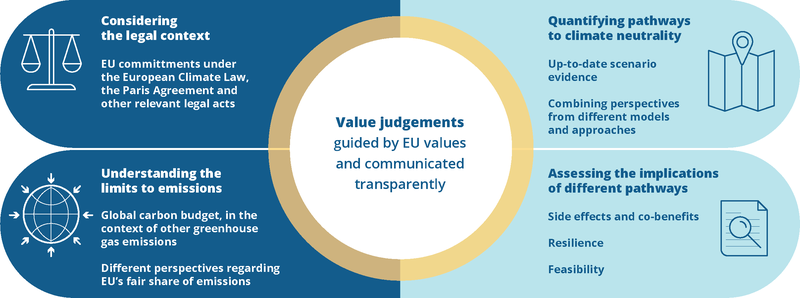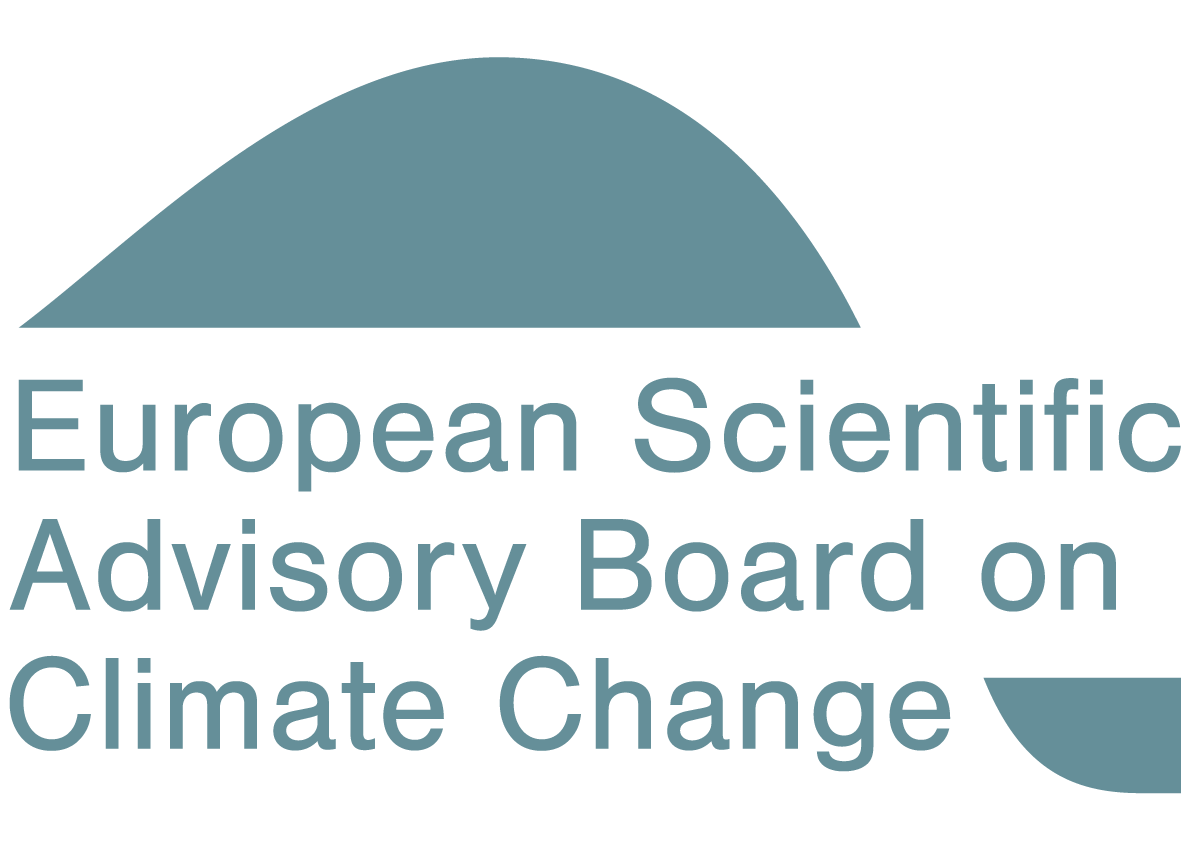All official European Union website addresses are in the europa.eu domain.
See all EU institutions and bodiesSetting climate targets based on scientific evidence and EU values: initial recommendations to the European Commission
To provide constructive and timely input to the European Commission for the preparation of a proposal for a climate target for 2040 in the European Union (EU), the European Scientific Advisory Board on Climate Change provided recommendations on how to ensure the approach taken is systematic, transparent and guided by EU values. This initial input will be followed by a quantitative advice within the first half of 2023, before the Commission finalises its proposal.
To limit the impacts of climate change, over 190 countries around the world, including the European Union, have adopted the Paris Agreement goal of keeping global warming well below 2 degrees Celsius above pre-industrial levels, while pursuing efforts to limit the increase to 1.5 degrees.
In pursuit of this temperature goal, the European Climate Law sets out a binding objective for the EU to reach climate neutrality by 2050 and sets the 2030 target for the EU, which is to reduce net domestic greenhouse gas emissions by at least 55% compared to 1990 levels. The law also requires the European Commission to propose a 2040 climate target for the EU in the first half of 2024, accompanied by an indicative EU greenhouse gas budget for the period 2030-2050.
With this document, the European Scientific Advisory Board on Climate Change (the Advisory Board) provides an initial input on key issues for the European Commission to consider when preparing its 2040 target proposal and accompanying budget.
Key Recommendations
The Advisory Board recommends that the European Commission follow an approach that is systematic, transparent and guided by EU values, when preparing its EU 2040 climate target proposal and accompanying greenhouse gas budget.
To this end, the Advisory Board recommends that the European Commission’s analysis consider the following five key areas, presented in detail in the initial advice document:
- The scientific and legal context
- Physical limits to global emissions and the EU's 'fair share'
- Transformation scenarios towards net zero greenhouse gas emissions by 2050 for the EU
- The implications of different pathways in terms of side effects, co-benefits, resilience and feasibility
- The use of value judgements, especially when addressing tensions between different issues and principles

The Advisory Board’s letter to the Commission can be found here.
The Advisory Board intends to publish additional, quantitative, advice within the first half of 2023. This is expected to consist of an indicative range of emission pathways for the EU, based on available modelling results selected in accordance with the principles and method described in this initial input, as well as the associated interim target values, and discussion of the implications of choosing between different pathways.

